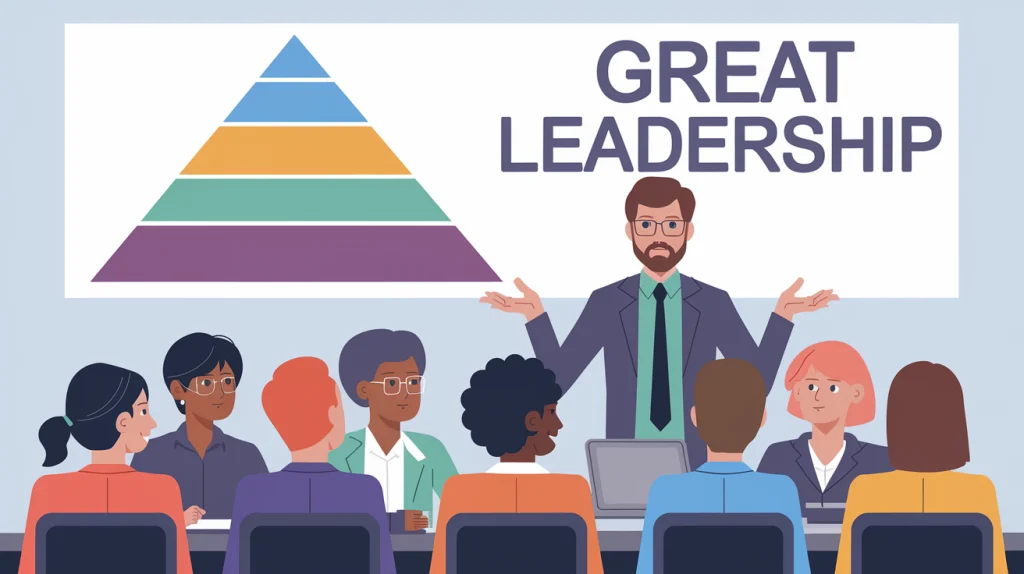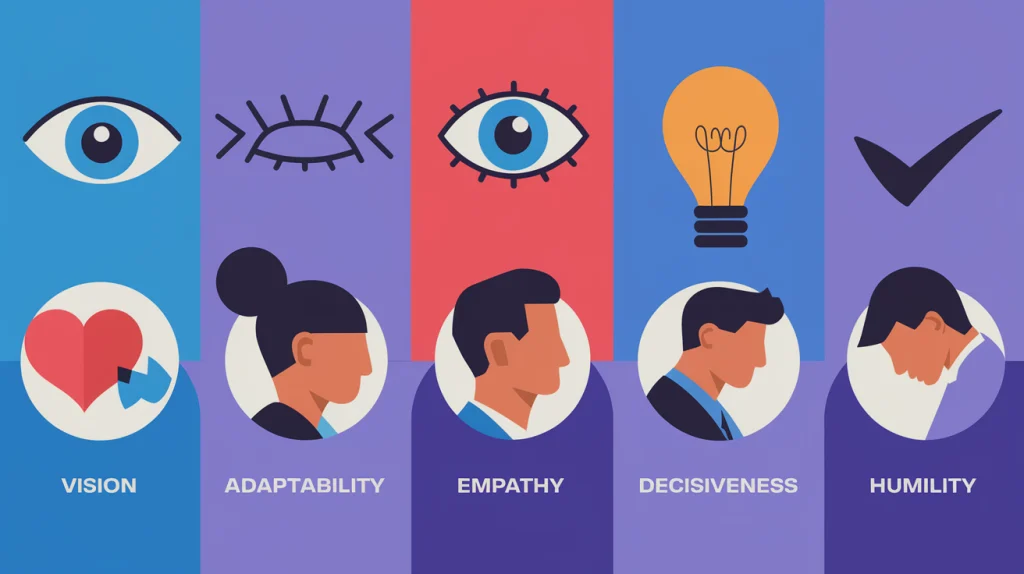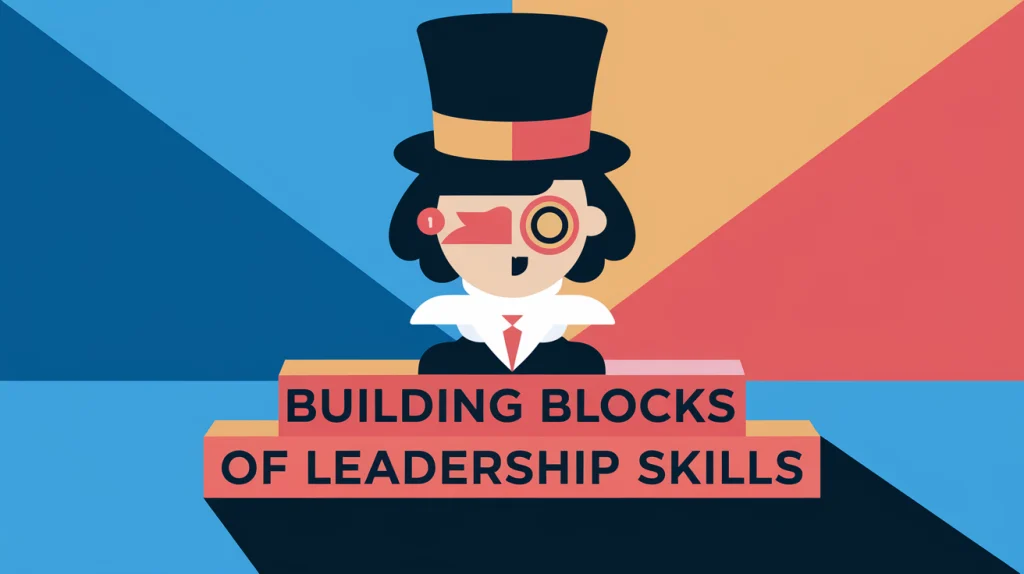Leadership is more than just a position or a title—it’s a dynamic set of skills that shapes how individuals influence, inspire, and empower those around them. At its core, effective leadership is about understanding people, navigating challenges, and fostering an environment where ideas and collaboration thrive. Yet, mastering these skills is no small feat; it requires a delicate balance of knowledge, emotional intelligence, and ethical decision-making.

Throughout history, leaders like Nelson Mandela and Eleanor Roosevelt have demonstrated that great leadership is deeply tied to vision, resilience, and the ability to adapt. Mandela once stated, “I never lose. I either win or learn.” This philosophy underlines the importance of growth and reflection in leadership, emphasizing that setbacks are opportunities to build stronger, more capable leaders.
Modern workplaces demand leaders who are strategic thinkers and empathetic communicators. Whether guiding a team through organizational change or inspiring innovation, leadership skills act as the cornerstone of personal and professional success. This article explores these essential skills, offering insights into their development and practical application. By delving into the complexities of leadership, we aim to spark reflection and equip readers with tools to lead with purpose and confidence.
What Defines Great Leadership?
Great leadership is not a one-size-fits-all concept. It emerges from a blend of personal attributes, situational awareness, and the ability to connect with others on a deeper level. While leadership styles and approaches may vary, certain qualities consistently define exceptional leaders. Below is a list of these core traits:
- Vision: A great leader possesses a clear and compelling vision for the future. They inspire others by articulating this vision in ways that resonate and motivate.
- Integrity: Leading with honesty and strong moral principles fosters trust and credibility among teams and stakeholders.
- Empathy: Understanding and valuing the perspectives of others helps leaders build meaningful relationships and navigate conflicts with sensitivity.
- Resilience: Effective leaders maintain composure under pressure, using setbacks as opportunities to learn and grow.
- Adaptability: The ability to pivot in response to challenges and changing circumstances ensures relevance and effectiveness.
These qualities are brought to life through the leader’s style, which influences how they interact with others and make decisions. Whether they lead through inspiration, structure, or service, their approach shapes the culture of the teams they guide. In the next section, we will explore different leadership styles and how they impact the workplace.

The Building Blocks of Leadership Skills
Leadership skills are not innate; they are cultivated through experience, learning, and self-awareness. These foundational skills enable leaders to guide teams effectively, overcome challenges, and inspire collective success. Below are the key building blocks of leadership skills, each critical to a leader’s ability to excel:
1. Communication and Influence
Effective communication is the cornerstone of leadership. It is not just about conveying information but about fostering understanding and motivating others to act.
- Active Listening: Great leaders listen to understand, not just to respond. This builds trust and ensures team members feel valued.
- Persuasive Storytelling: Leaders use narratives to connect emotionally, making their vision relatable and inspiring.
- Non-Verbal Communication: Body language, tone of voice, and facial expressions often speak louder than words. Mastering these elements enhances credibility and presence.

2. Decision-Making and Problem-Solving
Leadership often involves navigating complex situations where clear answers are not always apparent.
- Analytical Thinking: Breaking problems into manageable parts allows leaders to identify root causes and develop effective solutions.
- Risk Assessment: Balancing potential outcomes with available resources ensures informed and strategic decisions.
- Consensus Building: Including diverse perspectives in decision-making fosters buy-in and strengthens solutions.
3. Emotional Intelligence in Leadership
Emotional intelligence (EI) is a defining feature of successful leaders, allowing them to navigate interpersonal dynamics with grace and effectiveness.
- Self-Awareness: Understanding one’s strengths, weaknesses, and triggers is essential for personal growth and authenticity.
- Empathy: Recognizing and valuing the emotions of others strengthens relationships and team cohesion.
- Conflict Resolution: Leaders with high EI can address disagreements constructively, maintaining harmony and focus within the team.

The Role of Reflection in Leadership Growth
Reflection is a vital yet often overlooked aspect of leadership growth. In the fast-paced demands of modern leadership, taking time to pause and evaluate experiences can significantly enhance a leader’s effectiveness and adaptability. True growth comes not from avoiding mistakes but from learning from them. Many of history’s most respected leaders, from Winston Churchill to Oprah Winfrey, have credited their ability to reflect on failures as the foundation for their eventual successes. When leaders take the time to analyze what went wrong, they uncover valuable insights that can inform future decisions and strategies.
Self-assessment tools play a critical role in this process, providing structured ways to examine strengths and areas for improvement. Techniques such as SWOT analysis allow leaders to identify opportunities and mitigate potential threats, while frameworks like the Johari Window encourage greater self-awareness and openness to feedback. These tools enable leaders to move beyond surface-level introspection and engage in deep, transformative reflection.
Through continuous reflection, leaders develop a growth mindset that embraces challenges and adapts to change. This process not only refines their skills but also fosters the humility and emotional intelligence needed to connect with their teams authentically. Reflection is not merely a retrospective exercise—it is a forward-thinking practice that equips leaders to evolve with purpose and resilience.

Developing Leadership Skills in the Modern World
Leadership in today’s world requires a dynamic approach. The rapid pace of technological advancements, evolving workplace cultures, and global challenges demand that leaders remain agile, continually grow their expertise, and embrace innovation. These factors have reshaped what it means to lead effectively, emphasizing adaptability, lifelong learning, and leveraging technology as key components of modern leadership.
Adaptability in a Changing Landscape
The ability to adapt is no longer optional—it is essential in today’s leadership. Industries are constantly evolving, driven by market trends, economic shifts, and changing societal expectations. Leaders who excel in adaptability do so by embracing a proactive mindset and fostering resilience in their teams.
Adaptable leaders focus on:
- Staying Informed: They keep up with industry trends, technological advancements, and competitor strategies to anticipate changes rather than react to them.
- Encouraging Innovation: By promoting creativity and experimentation, they empower their teams to find new solutions to emerging challenges.
- Strategic Flexibility: They adjust goals, plans, and processes as needed, ensuring alignment with evolving circumstances while maintaining long-term vision.
- Cultivating Resilience: Adaptable leaders help their teams embrace change with confidence, viewing it as an opportunity rather than a setback.
Embracing Lifelong Learning
Continuous education has become a cornerstone of leadership development. Whether through formal education, workshops, or mentorship programs, leaders who actively seek to expand their knowledge and skills remain ahead of the curve. Lifelong learning fosters innovation and keeps leaders equipped to address new challenges effectively. For instance, attending industry conferences or participating in executive training programs can provide valuable insights into emerging trends and best practices.
Technology’s Role in Leadership
Technology has transformed how leaders communicate, make decisions, and manage teams. Tools like AI and data analytics offer powerful capabilities for analyzing performance, forecasting trends, and enhancing decision-making processes. Additionally, remote collaboration platforms, such as video conferencing and project management tools, enable leaders to maintain cohesion and productivity within increasingly dispersed teams. However, effective use of technology also requires an understanding of its limitations and the ability to integrate human judgment and creativity into tech-driven solutions.
By focusing on these critical areas, leaders can position themselves to meet the demands of an ever-evolving world. Adaptability, lifelong learning, and technological proficiency are not just complementary skills—they are foundational pillars for success in the modern leadership landscape.

Inspiring Others Through Leadership
At its heart, leadership is not about commanding authority but about inspiring those around you to reach their full potential. The most effective leaders are those who empower individuals to contribute their best work, fostering a sense of purpose and unity within a team. Inspiration in leadership stems from a blend of vision, authenticity, and the ability to connect with people on a meaningful level.
A compelling vision is one of the strongest tools for inspiring others. Leaders who clearly articulate a vision that resonates with their teams provide a sense of direction and motivation. This shared goal becomes a rallying point, energizing individuals to align their efforts and creativity toward a common objective.
Authenticity is equally critical in building trust and credibility. Leaders who demonstrate vulnerability, admit their mistakes, and show genuine care for their team members create an environment where people feel safe to express themselves and take risks. Such a culture encourages innovation and fosters a deep commitment to the organization’s success.
Inspiration also comes from embracing diversity and inclusion. Leaders who celebrate different perspectives and value the unique contributions of each team member unlock the collective potential of their teams. This approach not only enhances collaboration but also drives innovative solutions that wouldn’t emerge in a homogenous environment.
Ultimately, inspiring others through leadership requires continuous effort, empathy, and intentional action. By leading with vision, authenticity, and inclusivity, leaders can motivate individuals to exceed their own expectations and contribute to a greater purpose. This is the essence of leadership that leaves a lasting impact.


